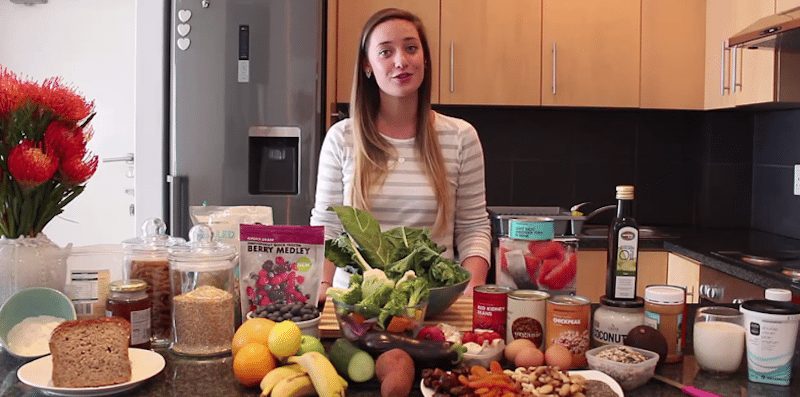Nutrition
Episode #4 of the course “Ultimate Guide to Running” by Matthew Henshall
Just googling diets and weight loss can often yield an overwhelming amount of information, with varying opinions and diet fads that promise scarily unrealistic results and shortcut solutions. These methods are often unsustainable and unhealthy. The best way to look after yourself and your body is to follow a healthy eating plan that includes all the major food groups in the correct proportions along with a regular exercise regimen. Understanding what your body needs is key.
Carbohydrates
Carbohydrates are high in energy and provide your body with fuel. Carbs include bread, pasta, cereals, etc. The problem is a lot of the carbs we have today are covered in sugar, causing your body to eat more than it needs. If you exercise, you need carbs, but keep it to 1-2 medium portions a day. Avoid added sugar. Carbs are ideal for pre-race “carbo-loading” and during a run if it is over an hour.
Fruit
Fruits contain lots of vitamins, minerals, and fiber that your body needs, so you should be including at least 3 servings a day in your diet. If you’re training, you could include more servings. Again, be very wary of fruit juices and boxed juices that contain huge servings of sugar.
Vegetables
You should be including at least 5 servings of fresh vegetables in your diet each day. These are a great pre-race meal for the days leading up to a long race. Try to include veggies in every meal you eat. Focus on your dark, leafy greens such a spinach, kale, and broccoli because these are great sources of iron.
Protein
When you are trying to build muscle and gain strength, you definitely want to up your protein intake. Eat lean meats such as chicken or turkey breast, and try lean steaks so you have the option of adding healthy fat sources to your meals (as opposed to eating fattier meats such as pork/bacon, lamb, and sausages, where you consume that fat straight away). Eggs and fish are other great sources of protein. Oily fish such as salmon or trout will give you omega-3 oils and essential fats. If you’re vegetarian or even vegan, there are other sources of protein, including nuts, quinoa, chickpeas, beans, and lentils. It is protein that your body needs post-race.
Fats
Fat is really important for maintaining your body’s muscle mass. If you’re trying to lose weight and are eating fat, your body feels comfortable using your fat reserves for energy, so it can actually assist in fat loss. Look for unprocessed, natural sources of fat, like coconut or avocado oil. Adding small servings of these to your diet will fulfill your daily fat requirements.
Dairy
Dairy can be a good source of calcium, protein, and probiotics, but this is often no longer the case with the dairy products that you’ll find in your supermarket. Unless you are going to your local farm store to get unprocessed products, modern dairy products undergo processing that takes out most of the nutritional value.
Task
• Write down everything you eat during the day, then calculate how many teaspoons of sugar you are eating (5g = 1 teaspoon)
• Have a look at the food in your cupboard and at the supermarket to find meals better suited to your running needs.
Recommended book
“The Feed Zone Cookbook: Fast and Flavorful Food for Athletes” by chef Biju Thomas
Share with friends

